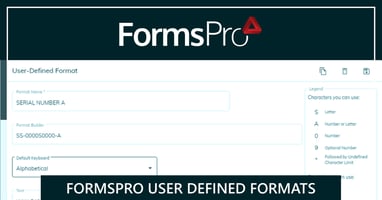Have you ever tried to key in a phone number with parathesis or dashes using your phone?...
Why Timesheets are Essential for Accurate Project Management and Billing
Why Timesheets are Essential for Accurate Project Management and Billing
Keeping track of time is crucial to the success of any project. It not only helps to ensure that deadlines are met but also plays a significant role in billing accuracy. That's where timesheets come in. Timesheets are a valuable tool that enables businesses to track employee hours, project progress, and accurately bill clients for the work done. With the rise of remote work and flexible schedules, timesheets have become more critical than ever in ensuring that everyone is accountable for their work and that the project is on track. In this article, we will explore the benefits of using timesheets, how they can improve project management and billing accuracy. Whether you are a small business owner, or part of a large corporation, understanding the importance of timesheets is essential to the success of your projects. So, let's dive in and explore why timesheets are essential for accurate project management and billing.
The Importance of Accurate Project Management and Billing
 Accurate project management and billing are essential for the success of any business. Without it, businesses risk losing money and damaging their reputation. Accurate project management involves keeping track of time, resources, and progress towards project goals. It helps businesses to stay on track, meet deadlines, and deliver quality work to clients. Accurate billing, on the other hand, involves invoicing clients for the work done and ensuring that the billing is transparent and accurate. It helps businesses to get paid for their work and maintain a good relationship with clients.
Accurate project management and billing are essential for the success of any business. Without it, businesses risk losing money and damaging their reputation. Accurate project management involves keeping track of time, resources, and progress towards project goals. It helps businesses to stay on track, meet deadlines, and deliver quality work to clients. Accurate billing, on the other hand, involves invoicing clients for the work done and ensuring that the billing is transparent and accurate. It helps businesses to get paid for their work and maintain a good relationship with clients.
How Timesheets Help with Project Management
Timesheets are an essential tool for project management. They help businesses to track employee hours and ensure that everyone is working on the project as agreed. Timesheets also help businesses to identify any bottlenecks in the project and address them promptly. They provide a real-time view of the project's progress, making it easier for businesses to make necessary adjustments to meet deadlines. Timesheets also help to ensure that employees are productive and accountable for their work. This helps businesses to maintain a positive work culture and improve employee morale.
Moreover, timesheets help businesses to plan for future projects. By analyzing the data collected in timesheets, businesses can identify trends and patterns that can help them to plan for future projects. They can identify what worked and what did not work in past projects and use that information to make informed decisions for future projects. This makes it easier for businesses to estimate project timelines and allocate resources more effectively.
How Timesheets Help with Billing
Billing accurately is important for any business. Timesheets play a significant role in ensuring that billing is accurate. By tracking employee hours and project progress, timesheets provide businesses with the necessary data to invoice clients accurately. They ensure that clients are billed only for the work done and that the billing is transparent. This helps businesses to maintain a good relationship with clients and avoid disputes over billing.
Timesheets also help businesses to identify any discrepancies in billing. By comparing the timesheets with the actual work done, businesses can identify any errors in billing and rectify them promptly. This helps businesses to maintain their reputation and avoid any legal disputes with clients.
Common Mistakes to Avoid When Using Timesheets
While timesheets are an essential tool for project management and billing, there are several common mistakes that businesses should avoid. Some of these mistakes include:
Not enforcing timesheet policies
Businesses should have clear policies on timesheet submission and enforcement. They should ensure that employees are aware of these policies and that they are enforced consistently.
Not tracking all hours worked
Businesses should ensure that all hours worked by employees are tracked, including overtime, breaks, and non-project work. This ensures that billing is accurate and that employees are paid for all the time worked.
Not reviewing timesheets regularly
Businesses should review timesheets regularly to ensure that they are accurate and that employees are following the policies. This helps to identify any discrepancies early and rectify them promptly.
Tips for Effective Timesheet Tracking
To ensure effective timesheet tracking, businesses should follow these tips:
Set clear policies
Businesses should have clear policies on timesheet submission, enforcement, and review. They should ensure that employees are continually trained and updated on new policies.
Train employees on timesheet tracking
Businesses should train employees on how to use timesheets effectively. This includes how to fill out timesheets accurately and how to submit them on time.
Conclusion and Next Steps
Timesheets are an essential tool for accurate project management and billing. They help businesses to track employee hours, project progress, and invoice clients accurately. By implementing timesheets in your organization and following best practices, you can ensure that your projects run smoothly and that your billing is transparent and accurate. So, take the next step and implement timesheets in your organization today!


